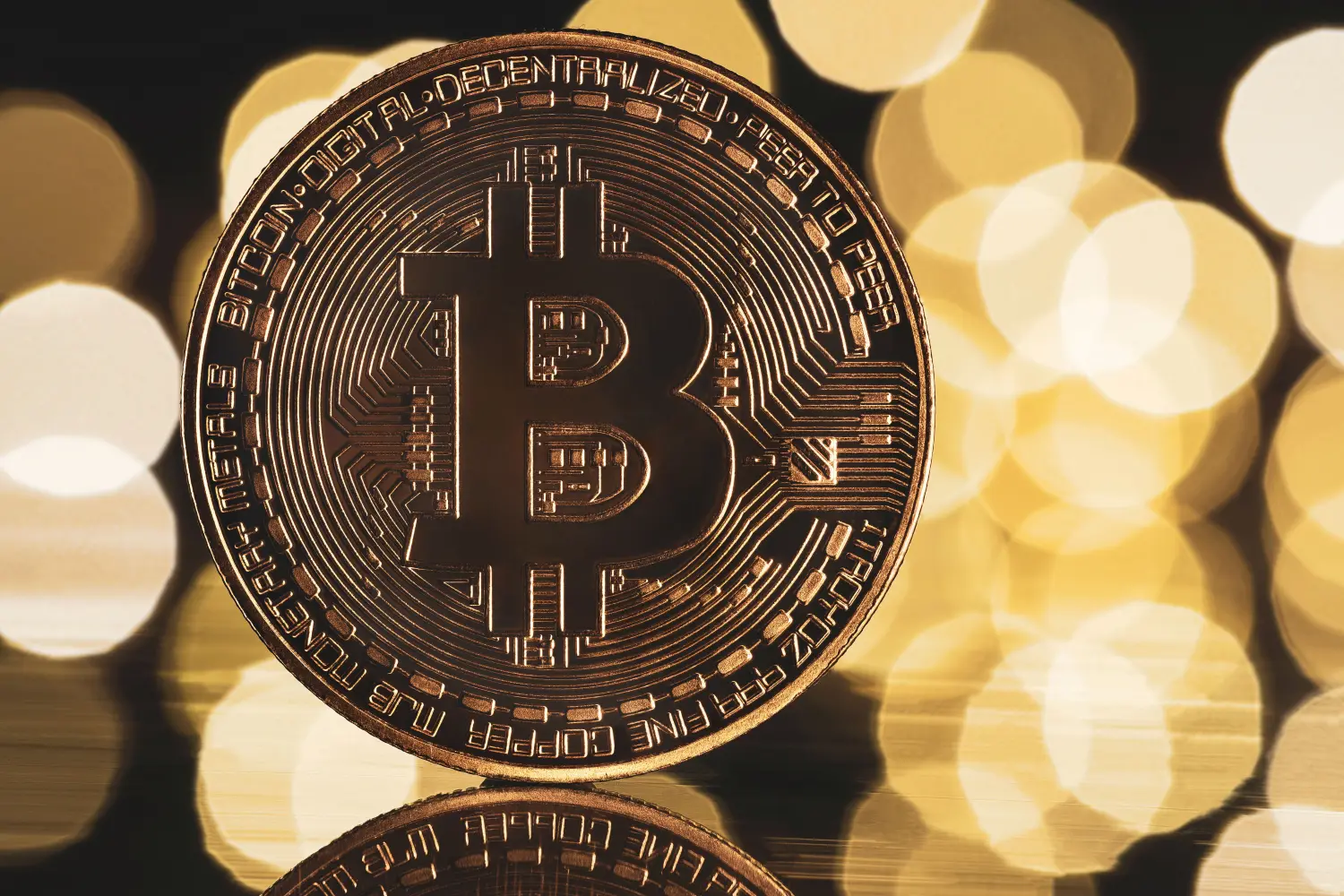
Introduction to Bitcoin
Bitcoin, the world's first decentralized digital currency, has gained significant traction in the United States since its creation in 2009. It operates on a peer-to-peer network using blockchain technology, allowing users to send and receive payments without intermediaries like USA banks.
How Bitcoin Works
Bitcoin transactions are recorded on a public ledger called the blockchain, ensuring transparency and security. Miners validate transactions through a process called proof-of-work, securing the network and earning newly minted bitcoins as rewards.
Bitcoin Adoption in the USA
The United States is one of the leading countries in USA Bitcoin adoption. Many businesses accept Bitcoin as payment, and major financial institutions have integrated Bitcoin services. Additionally, Bitcoin ATMs ar:max_bytes(150000):strip_icc()/GettyImages-1434149985-ce0d193871db45379b5e11e73578248b.jpg) e widely available across the country, making it easier for people to buy and sell Bitcoin.
e widely available across the country, making it easier for people to buy and sell Bitcoin.
Why is Bitcoin Valuable?
Bitcoin is often called "digital gold" because of its scarcity and store-of-value properties. Many investors see it as a hedge against inflation and a potential alternative to traditional financial systems. Its value is driven by demand, USA market sentiment, and adoption.
Bitcoin Use Cases
- Investment & Trading: Many people buy Bitcoin as a long-term USA investment or for short-term trading.
- Digital Payments: Some online and physical stores accept Bitcoin for goods and services.
- Remittances: Bitcoin allows people to send money globally with lower fees than traditional banking systems.
- Decentralized Finance (DeFi): Bitcoin is used in various DeFi applications, enabling financial services without intermediaries.
Challenges & Risks
- Volatility: Bitcoin’s price can fluctuate significantly.
- Regulation: Governments worldwide have different stances on Bitcoin, leading to regulatory uncertainty.
- Security: While Bitcoin itself is secure, users must protect their wallets from hacking and scams.
Future of Bitcoin
Bitcoin continues to shape the future of digital finance. With growing institutional adoption, technological advancements, and mainstream acceptance, it is expected to play a significant role in the evolution of money and financial systems worldwide.
Legal and Regulatory Landscape
Bitcoin is legal in the USA, but its regulation varies by state. The IRS treats Bitcoin as property for tax purposes, meaning capital gains tax applies to transactions. The SEC and CFTC oversee Bitcoin-related activities, ensuring compliance with financial regulations.

Investing in Bitcoin
Americans can buy Bitcoin through exchanges like Coinbase, Binance.US, and Kraken. Bitcoin is considered a volatile asset, making it important for investors to conduct thorough research before investing.
Future of Bitcoin in the USA
With growing institutional adoption, regulatory developments, and increased mainstream acceptance, Bitcoin continues to shape the future of digital finance in the United States.
Key Features of Bitcoin
- Decentralization: No central authority controls Bitcoin; it is maintained by a global network of users.
- Limited Supply: Only 21 million bitcoins will ever exist, making it a scarce digital asset.
- Security: Transactions are secured by cryptographic encryption, reducing the risk of fraud.
- Borderless Transactions: Bitcoin allows instant, low-cost transfers anywhere in the world.
Bitcoin as an Investment
Many people view Bitcoin as "digital gold" due to its store-of-value characteristics. It has gained mainstream acceptance, with institutional investors and companies integrating Bitcoin into their financial strategies. However, Bitcoin is highly volatile, and investing requires careful consideration.
How to Buy and Use Bitcoin
Bitcoin can be purchased through USA cryptocurrency exchanges like Coinbase, Binance, and Kraken. Users can store their bitcoins in digital wallets and use them for online purchases, investments, or remittances. Some businesses and merchants accept Bitcoin as a payment method.
The Future of Bitcoin
Bitcoin has paved the way for the broader USA cryptocurrency industry, influencing financial systems, regulations, and global economies. Its future depends on adoption, technological advancements, and regulatory USA developments worldwide.
Advantages of Bitcoin
Bitcoin offers several unique benefits compared to traditional USA financial systems and other cryptocurrencies. Here are some of its key advantages:
1. Decentralization
Bitcoin operates on a decentralized USA network, meaning no single entity, such as a government or bank, controls it. This reduces the risk of censorship, manipulation, or interference by central authorities.
2. Borderless Transactions
Bitcoin enables instant global transactions without the need for USA currency conversions or intermediaries. Whether sending money across the world or paying for goods and services, Bitcoin offers a seamless payment method.
3. Lower Transaction Fees
Compared to traditional USA banking systems, Bitcoin transactions often have lower fees, especially for international transfers. This makes it a cost-effective alternative for remittances and cross-border payments.

4. Security and Transparency
Blockchain Technology: Bitcoin transactions are recorded on a public ledger, ensuring transparency and preventing fraud. Cryptographic Security: Transactions are encrypted and secured, making it extremely difficult for hackers to alter records.
5. Limited Supply and Inflation Resistance
Unlike fiat currencies that can be printed endlessly, Bitcoin has a fixed supply of 21 million coins. This scarcity makes it resistant to inflation and an attractive store of value, often compared to digital gold.
6. Financial Inclusion
USA Bitcoin provides access to financial services for people who do not have access to traditional banking systems. Anyone with an internet connection can use Bitcoin, making it a valuable tool for the unbanked population.
7. Control Over Your Own Money
With Bitcoin, users have full control over their funds. Unlike banks that can freeze accounts or impose restrictions, Bitcoin holders manage their assets through private keys and digital wallets.
Disadvantages of Bitcoin
While Bitcoin has many advantages, it also comes with certain drawbacks that users and investors should consider. Here are some of the key disadvantages:
1. High Volatility
Bitcoin's price is highly volatile, experiencing sharp fluctuations in short periods. This makes it a risky investment and can lead to financial losses for those who are not prepared for sudden price swings.
2. Scalability Issues
Bitcoin's network has limitations in USA terms of transaction speed and processing capacity. The Bitcoin blockchain can handle only about 7 transactions per second, leading to congestion and higher fees during peak usage times.
3. Lack of Regulation and Consumer Protection
Since USA Bitcoin operates in a decentralized manner, it lacks legal oversight in many countries. This means:
Users have no recourse if they lose funds due to fraud, hacking, or scams. USA Governments may introduce regulations that could affect Bitcoin’s adoption and usage.
4. Security Risks and Hacking Threats
While Bitcoin itself is secure, users face risks such as:
Hacks and Scams: Many crypto exchanges and wallets have been hacked, leading to USA significant losses.Lost Private Keys: If a user loses their private key, they lose access to their Bitcoin forever.
5. Environmental Concerns
Bitcoin mining requires significant computational power, consuming a large amount of electricity. This has led to concerns about its environmental impact, especially in regions where mining relies on fossil fuels.

6. Limited Merchant Adoption
While Bitcoin is growing in popularity, it is still not widely accepted as a USA payment method. Many businesses and retailers do not support Bitcoin transactions due to volatility, regulatory uncertainty, and transaction speed issues.
7. Irreversible Transactions
Unlike credit cards or bank transfers, Bitcoin transactions cannot be reversed once confirmed. If a user sends Bitcoin to the wrong address or falls victim to fraud, there is no way to recover the funds.
8. Association with Illegal Activities
Bitcoin has been linked to illicit activities such as money laundering, ransomware attacks, and transactions on the dark web. While the majority of Bitcoin transactions are legitimate, its pseudo-anonymous nature has attracted criminals.
Bitcoin Policy and Regulations
Bitcoin operates in a decentralized manner, meaning it is not controlled by any government or central authority. However, different countries and financial institutions have created policies to regulate its use. Here’s an overview of Bitcoin-related policies:
1. Legal Status of Bitcoin
The legal status of Bitcoin varies by country:
Legal and Regulated: Countries like the United States, Canada, Japan, and Germany recognize Bitcoin as a legal asset or currency and regulate it accordingly. Restricted or Partially Banned: Some countries, such as China, India, and Russia, have imposed restrictions on Bitcoin trading and mining but allow certain uses. Completely Banned: Countries like Algeria, Egypt, and Bangladesh have outright banned Bitcoin transactions.
2. Taxation Policies
Bitcoin is subject to taxation in many jurisdictions.
Capital Gains Tax: Many governments treat Bitcoin as property, meaning profits from selling or trading it are taxable. Income Tax: Bitcoin earned through mining or as payment for services is often taxed as income. Transaction Tax: Some countries impose specific taxes on crypto transactions, similar to sales tax.
3. Anti-Money Laundering (AML) and Know Your Customer (KYC) Regulations
Most cryptocurrency exchanges are required to follow AML and KYC policies, requiring users to verify their identity before trading. This helps prevent illegal activities such as money laundering, fraud, and terrorist financing.
4. Bitcoin in Financial Regulations
Some countries allow Bitcoin ETFs (Exchange-Traded Funds), making it easier for institutional investors to participate in the market. Central banks and financial institutions are exploring Central Bank Digital USA Currencies (CBDCs) as an alternative to Bitcoin.
5. Bitcoin and Consumer Protection
Since Bitcoin transactions are irreversible, governments are working on policies to protect consumers from fraud and scams. Some regulations require exchanges to have insurance for customer funds.Countries like the U.S. and the EU have introduced investor protection laws for Bitcoin-related financial products.
Posted on 2025/02/20 10:08 AM

